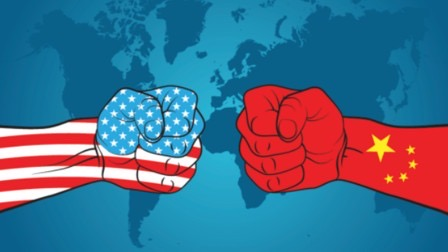? (+86)-0755-89205789 Ø ? sales@stusupplychain.com NVOCC:MOC-NV09192 | FMC:030310
- Article title
- Article summary
- Article content
- Multi Field Search
NEWS & BLOG
Views: 0 Author: Site Editor Publish Time: 2025-04-14 Origin: Site
The U.S. has once again raised tariffs on Chinese imports, citing issues like fentanyl as justification. This follows years of anti-dumping duties on furniture, metal products, plastics, and more¡ªsome as high as 216.83% (e.g., wooden bedroom furniture). Such tariffs erase Chinese exporters' price competitiveness, forcing many to abandon the U.S. market amid plunging orders and cash-flow crises.
Transshipment trade (via third countries) offers a legal workaround. Here¡¯s how it works:

Chinese exporters ship goods normally, claiming export tax rebates.
Cargo arrives at a free trade zone (FTZ) in the transit country.
Swap containers and relabel goods to mask Chinese origin.
Obtain new documents:
Transit country¡¯s Certificate of Origin (e.g., Malaysia¡¯s Form D for ASEAN trade)
Revised commercial invoice, packing list, and bill of lading showing transit country as exporter.
Shipments enter the U.S. as "ASEAN-origin," bypassing China-specific tariffs.
U.S. importers clear customs under the transit country¡¯s trade terms.
? Cost Savings ¨C Avoid 216.83% anti-dumping duties (e.g., furniture) or 145% punitive tariffs.
? Legal Compliance ¨C Properly documented transshipment complies with WTO rules of origin.
? Supply Chain Continuity ¨C Maintain U.S. market access without factory relocation.
? U.S. Customs Scrutiny ¨C Increased audits for "country hopping"; ensure:
No Chinese markings on goods/containers.
Consistent paperwork (no mismatched HS codes).
? Transit Country Risks ¨C Choose stable hubs (e.g., Malaysia, Vietnam) with:
Efficient FTZs (e.g., Port Klang, Tanjung Pelepas).
Strong trade agreements with the U.S. (e.g., ASEAN GSP benefits).
| Route | Cost (Per Unit) | Tariff | Final U.S. Price |
|---|---|---|---|
| Direct (China¡úU.S.) | $100 | +216.83% | $316.83 |
| Transshipped (China¡úMalaysia¡úU.S.) | 100+100+20 transit fee | 0% (ASEAN origin) | $120 |
Savings: $196.83/unit ¨C restoring price competitiveness.
? High-tariff industries: Furniture, metals, plastics, textiles.
? SMEs lacking resources for U.S. factory relocation.
? E-commerce sellers using "de minimis" loopholes (<$800 shipments).
U.S. may tighten rules (e.g., stricter origin audits).
Alternative strategies:
Nearshoring to Mexico (USMCA tariff benefits).
Bonded warehouses in Canada/EU for reprocessing.
Pro Tip: Partner with experienced transshipment agents to ensure seamless logistics and compliance.